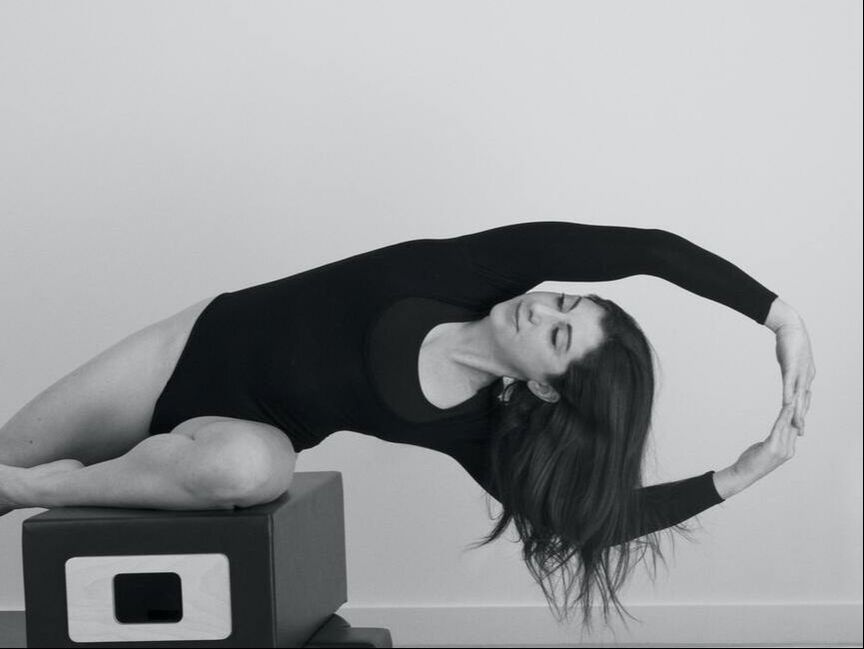What is a Reformer?
A reformer is a piece of equipment consisting of two bars, springs and straps that are used to provide resistance in Pilates exercises. Unlike small apparatus like the mat or ball where you can only use your body weight for resistance, reformers have adjustable spring tensions so it's easy to increase the difficulty level as you get stronger. There are four different types of reformers: basic reformer (the most common), long box reformer (great for taller people who require more space behind their back) short box reformer (small version of longer one), and the tower/wall-mounted reformer which attaches directly onto a wall with no stand required! Each type has its own unique features including jump board on some models allowing beginners to start with reformer exercises without worrying about balance or stability. Although reformers are effective for home use, they tend to be found more in a studio or clinic. They're typically only used by Pilates instructors because it takes time to learn how reformers work and what type of exercises you can do on each one. Does a Reformer Make Exercises Easier or Harder Reformers don't make exercises easier or harder - this depends more on the person rather than the machine itself! Reformers are fitted with resistance springs that are adjustable. This means that reformer exercise can be adapted to different levels of difficulty based on your strength and fitness level - no matter what type of reformer you use! Reformers can be used to help people recover from injuries with the springs providing a low level of resistance, or they can be used by athletes looking to increase their strength and power. Types of Exercises You Can Do On a Reformer There are many Pilates exercises you can do using the reformer, with some models offering more options than others depending on their equipment. They allow you to perform laying down, seated, standing and box-based workouts without needing any other apparatus. The long box reformers have longer bars so everything works slightly differently compared to shorter bar length machines which tend to feel more stable. Laying down reformer exercises are great for beginners who might not have the strength or control to hold positions on the reformer, particularly if you suffer from lower back pain due to increased flexibility through your spine. For these types of exercises, it's important that your head is supported with a rolled towel under your neck and shoulders whilst laying flat on an exercise mat underneath the reformers bars - this provides greater stability compared to being directly onto just one reformer bar alone! Seated work requires more concentration because you need good posture in order to do this type of Pilates training well so build up slowly until you can maintain excellent alignment without any effort. Standing work is another option using either long box reformers or short box models . These exercises are great for toning the body and working on balance. Finally, box-based reformer exercises are fantastic for adding an extra challenge to your Pilates routine! The boxes can be used in different ways - as a step, elevated platform or even chair height - which makes this type of reformer exercise more versatile. You can use them for all sorts of standing exercises that increase the intensity and really target those hard-to-reach muscles. Adding additional Small Apparatus Reformers don't have to just be used solo! If you have other small apparatus such as balls, bands or tubes, they can also be incorporated into your reformer workout by placing them onto the reformer bars. This means you get more for your money, allowing you to do a wider range of Pilates exercises in one session - target different areas and work on strength too! Ready to book into some Pilates classes? Why not check out our Tarragindi Reformer Pilates schedule! You can find all of our different Reformer Class Pricing Options here, and of course, why not grab one of our Pilates Intro offers! Still have questions? Our friendly staff are here to help! Give our Brisbane Southside Pilates clinic a call on 07 3706 3407 or email us at [email protected]
0 Comments
Leave a Reply. |

 RSS Feed
RSS Feed